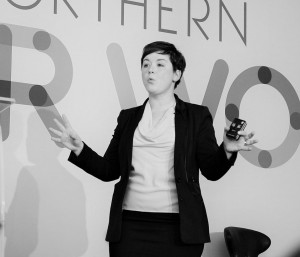Salary Negotiation Guide:
How to face your fears and negotiate that pay rise

Salary negotiation guide: Expert tips to successfully negotiate your pay rise
Table of Contents
Why Salary Negotiation Feels Uncomfortable: Understanding the Psychology
Negotiating your salary is one of the most challenging conversations in professional life. Whether in business or personal matters, negotiation skills are essential for success, yet many professionals find themselves avoiding these crucial discussions altogether.
As someone who runs a company providing negotiation training to organizations worldwide, I've observed that negotiation avoidance is a universal phenomenon. The reasons are clear: negotiation feels awkward, difficult, and inherently uncomfortable. It's completely understandable that people try to avoid it entirely or minimize the time spent on it.
Research reveals an interesting pattern: the more personal the negotiation, the more stressful it becomes. Multiple studies have shown that when negotiating on behalf of team members, clients, or managers, people display significantly more confidence and better performance compared to negotiating for themselves. Self-advocacy naturally triggers higher anxiety and lower self-assurance.
Salary negotiations represent the ultimate form of self-advocacy. Just thinking about asking for a pay rise makes many people nervous or hesitant. However, understanding this psychological barrier is the first step toward overcoming it and achieving the compensation you deserve.
The REAP Framework for Successful Pay Rise Negotiations
To maximize your chances of securing a salary increase, you need a structured, strategic approach. The REAP framework—which I recommend in my coaching sessions—provides a systematic method that significantly improves negotiation outcomes. This four-step process helps you prepare thoroughly and negotiate confidently.
Research: Conduct Comprehensive Pre-Negotiation Preparation
Thorough research forms the foundation of any successful salary negotiation. Your preparation should cover three critical areas:
Understand Industry Salary Benchmarks
Investigate the current market rates for your role, experience level, and industry. Utilize salary surveys, job posting sites, professional networks, and recruitment consultants to determine competitive compensation ranges. This data validates your request and demonstrates you've done your homework.
Document Your Value and Contributions
Compile concrete evidence of your achievements and impact on the organization. Quantify your contributions wherever possible—revenue generated, costs saved, projects delivered, efficiency improvements, or team growth. Numbers and specific examples create compelling arguments that are difficult to dispute.
Analyze Your Company's Context and Priorities
Understanding your employer's current situation, strategic direction, and key objectives allows you to position your value proposition effectively. Demonstrate how your contributions align with the company's future success and how investing in retaining you supports their goals.
Establish: Define Your Priorities Clearly
Before entering negotiations, clarify exactly what matters most to you. Compensation packages extend beyond base salary, so consider all elements:
- Base salary increase
- Performance bonuses and incentives
- Flexible working arrangements
- Remote work options
- Additional vacation time
- Professional development opportunities
- Enhanced benefits packages
- Stock options or equity
Rank these priorities so you can negotiate strategically. If your primary request isn't feasible, having clear alternatives prevents you from accepting inadequate outcomes or walking away empty-handed.
Ask: Make Strategic and Specific Proposals
The way you present your request significantly impacts the outcome. Follow these principles for maximum effectiveness:
Prepare Multiple Proposal Options
While having a clear first choice is essential, develop alternative packages that deliver value in different ways. This flexibility demonstrates reasonableness while maintaining your objectives.
Be Specific, Not Vague
Avoid phrases like "I'd like to earn more" or "Can we discuss a raise?" Instead, state precise figures: "I'm requesting an increase from $75,000 to $85,000 based on my contributions and market rates."
Project Confidence, Not Apology
Never apologize for requesting fair compensation. Phrases like "I'm sorry to ask" or appearing uncomfortable signal lack of confidence in your worth. Remember: you're advocating for appropriate recognition of your value, which is both reasonable and professional.
Understand the Negotiation Dynamics
Recognize that you and your employer start from different positions: they want to minimize costs while you want to maximize compensation. This isn't adversarial—it's simply the nature of negotiation. Understanding this structure helps you strategize effectively without taking responses personally.
Persevere: Keep the Conversation Alive
Initial rejection doesn't mean failure. In fact, the first "no" is often just the opening position. Here's how to persevere effectively:
Shift to Alternative Proposals
When your primary request is declined, transition smoothly to your next option. Ask strategic questions like: "What modifications would help bridge the gap?" or "If the full salary increase isn't possible now, can we discuss performance bonuses or flexible working arrangements?"
Schedule Follow-Up Discussions
If immediate agreement isn't possible, avoid letting the conversation die. Request a specific follow-up meeting: "Can we revisit this in three months after the Q2 results?" or "I'd like to schedule a review in six months to discuss this based on my continued contributions."
Continue Demonstrating Value
Between discussions, actively showcase your impact and achievements. New accomplishments strengthen your position and demonstrate that your value proposition wasn't just rhetoric but ongoing reality.
Keep Momentum Through Strategic Questions
Effective questions prevent negotiation stagnation. Ask: "What additional evidence would help you approve this increase?" or "What specific goals or achievements would justify this compensation level?" These questions show willingness to meet requirements while keeping your request active.
Managing Nervousness During Salary Negotiations
Recognize That Some Anxiety Actually Helps
Counterintuitively, moderate nervousness can enhance negotiation performance. Studies show that a certain level of tension increases focus, sharpens thinking, and improves attention to detail. The key is channeling this energy productively rather than letting it overwhelm you.
Practical Techniques for Controlling Nerves
If you're prone to excessive anxiety, these evidence-based techniques can help you regain composure:
Deep Breathing Exercises
Before entering the negotiation, practice slow, deep breathing. Inhale for four counts, hold for four, exhale for four, and pause for four. This activates your parasympathetic nervous system, reducing heart rate and promoting calmness. Even two to three minutes of focused breathing makes a measurable difference.
Mental Counting Technique
When you feel overwhelmed during the conversation, mentally count slowly to ten. This simple action interrupts anxiety spirals, gives you a brief pause to collect thoughts, and creates a sense of control.
Power Posing and Body Language
Research on embodied cognition shows that confident physical postures actually generate confident feelings. Before your meeting, spend two minutes in a "power pose"—standing tall with shoulders back and hands on hips. During the negotiation, maintain steady eye contact, sit upright, and use deliberate, calm gestures. These behaviors don't just signal confidence to others; they create genuine confidence within you.
Preparation Reduces Anxiety
Perhaps the most effective anxiety management tool is thorough preparation. When you've researched extensively, practiced your key points, and anticipated potential responses, confidence naturally follows. Uncertainty fuels anxiety; preparation provides certainty.
What to Avoid in Pay Rise Discussions
Negotiation Isn't Greedy or Inappropriate
Many professionals hesitate to negotiate salary because they fear appearing greedy, selfish, or unprofessional. This mindset fundamentally misunderstands the nature of professional negotiation.
Requesting fair compensation for your contributions is neither greedy nor unacceptable—it's a standard business practice. Organizations expect employees to advocate for themselves. In fact, failing to negotiate can signal lack of confidence or awareness of your own value.
Behaviors That Undermine Your Negotiation
While advocating confidently for yourself is appropriate, certain approaches damage your credibility and reduce your chances of success:
- Overly aggressive or demanding attitudes that create adversarial dynamics
- Emotional appeals based on personal financial needs rather than professional value
- Threats or ultimatums about leaving if demands aren't met (unless you're genuinely prepared to follow through)
- Comparing yourself unfavorably to colleagues or creating competitive tensions within the team
- Ignoring company context and making requests without considering organizational constraints
- Exaggerating contributions or claiming credit for team achievements
Build Your Negotiation Confidence
If you believe you deserve a pay rise, trust that instinct. Ask yourself: "Why do I believe I've earned this?" The answers to this question become the foundation of your negotiation case.
When you can articulate clear, compelling reasons for your request—backed by evidence and aligned with organizational value—you'll naturally project the confidence that makes negotiation successful. Remember: only you can advocate effectively for your own interests. No one else will do it for you.
Key Takeaways: Your Salary Negotiation Success Checklist
Successfully negotiating a salary increase requires strategic preparation, confident execution, and persistent follow-through. Here's your essential checklist for pay rise negotiations:
- Conduct Thorough Research: Understand industry benchmarks, compile evidence of your contributions, and analyze your company's priorities
- Clarify Your Priorities: Determine what matters most—base salary, bonuses, flexibility, benefits—and rank them
- Make Specific Requests: State precise figures and avoid vague language or salary ranges
- Project Confident Professionalism: Never apologize for requesting fair compensation; present your case assertively but respectfully
- Prepare Multiple Options: Have alternative proposals ready if your first choice isn't immediately feasible
- Don't Accept Initial Rejection: Use strategic questions and alternative proposals to keep the conversation active
- Manage Your Anxiety: Use breathing techniques, power posing, and thorough preparation to channel nervousness productively
- Schedule Follow-Up Discussions: Prevent the negotiation from dying by setting specific future review points
- Continue Demonstrating Value: Between discussions, actively showcase achievements that strengthen your case
- Trust Your Worth: Believe in your value and advocate confidently for appropriate recognition
Salary negotiation challenges many professionals because it requires self-advocacy in situations that feel inherently uncomfortable. However, with the REAP framework—Research, Establish, Ask, Persevere—you can approach these conversations strategically and confidently.
Remember that negotiation is a learned skill that improves with practice. Even if your first attempt doesn't yield your ideal outcome, the experience builds capability for future discussions. Organizations respect employees who understand their value and can articulate it professionally.
Your career growth and financial wellbeing depend significantly on your ability to negotiate effectively for yourself. Use these strategies, prepare thoroughly, and enter your next salary discussion with confidence. You deserve fair compensation for your contributions—and it's your responsibility to advocate for it.
Related Articles
AUTHOR
 NATALIE REYNOLDS
NATALIE REYNOLDS
The job interview
The word you are saying too much in job interviews
Discussing your salary expectations
Answering competency-based interview questions
Answering behavioural job interview questions
How to answer, “Why should we hire you?”
Questions to ask following the pandemic outbreak”
How to deal with a counter offer



